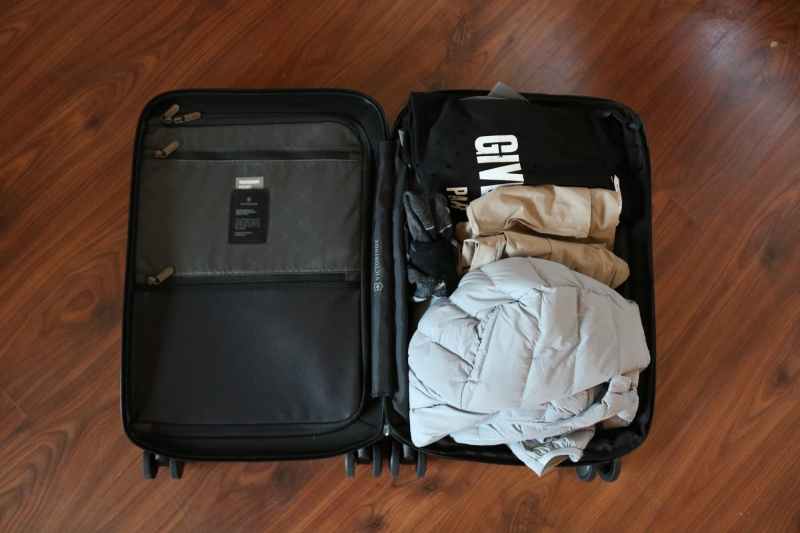The first time I realized AI was taking over my travel planning, it wasn’t some big, dramatic moment. I just looked up one day and noticed. I hadn’t talked to a single person while booking an entire trip.
No long phone calls, no endless tabs open comparing reviews, no scribbled packing lists. My itinerary had arrived fully formed in my inbox, complete with hotel, flights, and dinner spots that, somehow, already matched my taste.
You’ve probably had a similar moment without even thinking about it.
You booked a hotel without speaking to a human.
Your itinerary showed up in your inbox with restaurant reservations already slotted in.
And your phone buzzed with a flight delay alert before the airline ever emailed you.
That’s not magic – that’s AI.
Artificial intelligence is changing the way we experience travel. And while it might seem like it’s happening quietly in the background, the changes are anything but small.
Here’s what that means for your next trip, and how to actually make the most of it.
Vacation planning is now hyper-personalized, with less effort

Remember the hours you used to spend researching flights, browsing hotel reviews, and comparing activities on five different tabs? AI travel tools are making that a thing of the past.
Platforms like Travel Genie, Hopper, and Roam Around are now using machine learning to understand your preferences, past behavior, and even real-time travel trends to build smart, fully customized itineraries.
Some can suggest restaurants you’ll probably love before you even know what city you’re visiting. Others can recommend the best time to book a flight based on predictive pricing data, saving you money and stress.
The biggest perk? You don’t have to do much.
You answer a few questions or sync your travel history, and AI does the rest. That means less time planning and more time actually looking forward to your trip.
This is all part of a broader boom. The AI in tourism market is projected to grow from $2.95 billion in 2024 to a massive $13.38 billion by 2030. Personalized planning is at the heart of it.
AI is changing customer service

Tired of sitting on hold for 45 minutes only to be told to “try again later”? You’re not alone, and the travel industry is listening.
Today, 80% of customer service interactions in tourism are handled by AI. That means your refund request, gate change, or upgrade inquiry is probably going through a chatbot before it ever gets to a human. And in many cases, that’s actually a good thing.
Airlines and hotels are leaning into automated customer support systems that can answer common questions, issue refunds, rebook canceled flights, and even coordinate lost luggage logistics, often in seconds.
WhatsApp-based concierge services, like those popping up in boutique hotels, are also increasingly powered by AI.
Of course, not every AI interaction is seamless (we’ve all yelled “REPRESENTATIVE” into the void at some point), but in general, customer service is becoming faster, more scalable, and way less painful, especially during peak travel seasons.
Your gear (and how you use it) is changing, too

AI isn’t just living on your apps. It’s reshaping how, and what, you pack, how you move through airports, and even how you document your trip.
- Packing lists generated by AI tools now take into account your destination’s weather, trip length, planned activities, and personal style. No more overpacking or forgetting your charger.
- Mobile-first tools like TripIt, TravelPerk, and Hopper allow you to travel paperless. Itineraries, tickets, insurance, and even visa info all live on your phone, accessible in seconds.
- More travelers are ditching laptops altogether in favor of leaner tech setups that rely on smarter apps and cloud-based AI assistants.
There’s also an upside for travel providers – hotels using AI-powered revenue management tools report up to 10% more revenue, which means they’re more motivated to offer travelers smarter rates and perks in return.
So what does this mean for your next trip?

Here’s the bottom line – AI is making travel easier, faster, and more personalized than ever. But to get the most out of it, you’ll need to know how and when to lean in.
Here’s your cheat sheet:
- Use AI planning tools to generate itineraries based on your interests. But double-check them – AI can’t account for every nuance.
- Rely on smart booking apps that offer predictive pricing, refund automation, and real-time updates.
- Opt into proactive alerts for delays, gate changes, and disruptions. Some apps will even rebook you automatically.
- Be selective with AI customer service. For simple issues, bots are great. For complex problems, ask to speak to a human early.
- Don’t ditch your own intuition. AI is powerful, but it’s not perfect. Bring a little flexibility and common sense along with your passport.
AI might be working behind the scenes, but its impact on travel is front and center, and growing fast. Embracing these new tools (without giving up all control) could make your next trip smoother, smarter, and maybe even a little more fun.
Because at the end of the day, the best travel companion might just be an algorithm that gets you.




